SsangYong Korando VS Hyundai IONIQ 6 – Specs, Efficiency & Price Comparison
Which model is the better choice – the SsangYong Korando or the Hyundai IONIQ 6? We compare performance (190 HP vs 325 HP), boot capacity (551 L vs 401 L), efficiency (16.80 kWh7.50 L vs 13.90 kWh), and of course, the price (27000 £ vs 37600 £).
Find out now which car fits your needs better!
The SsangYong Korando (SUV) is powered by a Petrol or Electric engine and comes with a Manuel or Automatic transmission. In comparison, the Hyundai IONIQ 6 (Hatchback) features a Electric engine and a Automatic gearbox.
When it comes to boot capacity, the SsangYong Korando offers 551 L, while the Hyundai IONIQ 6 provides 401 L – depending on what matters most to you. If you’re looking for more power, you’ll need to decide whether the 190 HP of the SsangYong Korando or the 325 HP of the Hyundai IONIQ 6 suits your needs better.
There are also differences in efficiency: 16.80 kWh7.50 L vs 13.90 kWh. In terms of price, the SsangYong Korando starts at 27000 £, while the Hyundai IONIQ 6 is available from 37600 £.
Compare all the key specs now and find out which model fits your lifestyle best!
SsangYong Korando
The SsangYong Korando offers a blend of contemporary design and practicality, making it an appealing choice for urban adventurers. Its spacious interior and comfortable seating ensure a pleasant driving experience for both driver and passengers. With its reliable performance and advanced features, the Korando stands out in the competitive SUV market.
details @ Ssangyong
@ Ssangyong
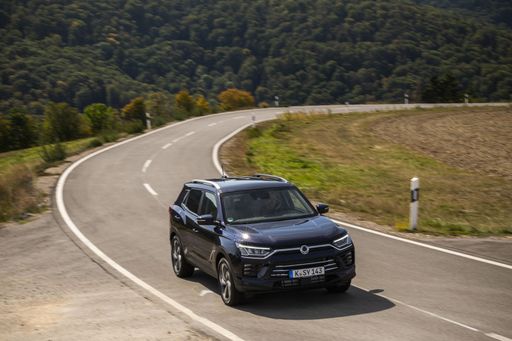 @ Ssangyong
@ Ssangyong
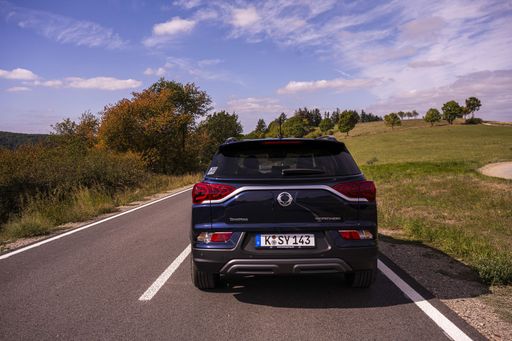 @ Ssangyong
@ Ssangyong
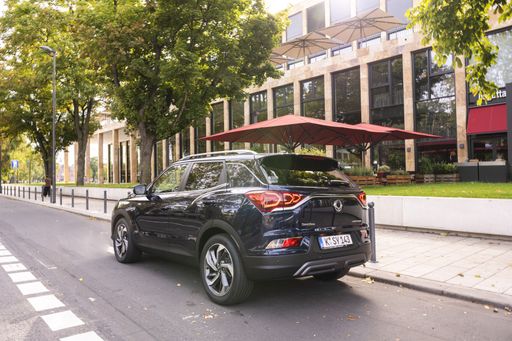 @ Ssangyong
@ Ssangyong
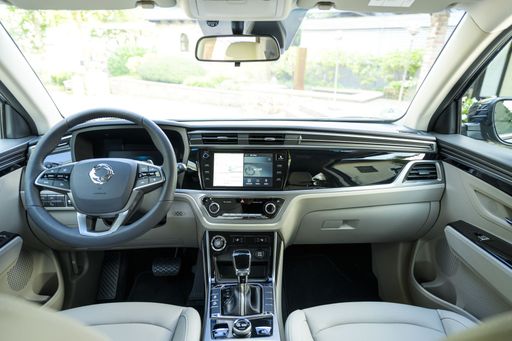 @ Ssangyong
@ Ssangyong
Hyundai IONIQ 6
The Hyundai IONIQ 6 merges futuristic design with eco-friendly technology, offering a glimpse into the future of electric mobility. Its sleek silhouette and aerodynamic profile are sure to capture attention on the road, while the interior provides a seamless blend of comfort and cutting-edge digital features. With a focus on efficiency and sustainability, this model represents a significant step forward in the evolution of electric vehicles.
details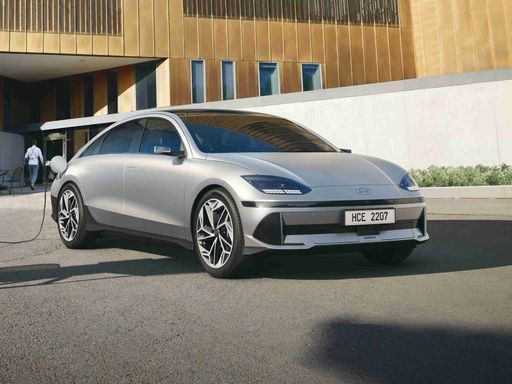 @ hyundai.news
@ hyundai.news
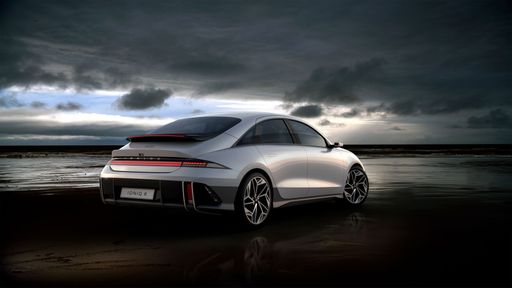 @ hyundai.news
@ hyundai.news
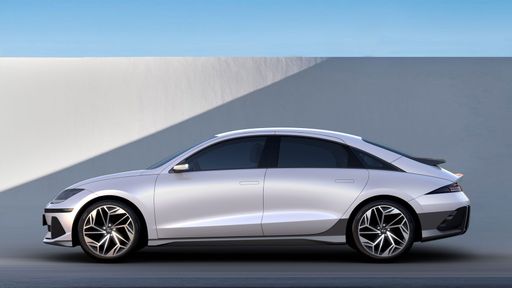 @ hyundai.news
@ hyundai.news
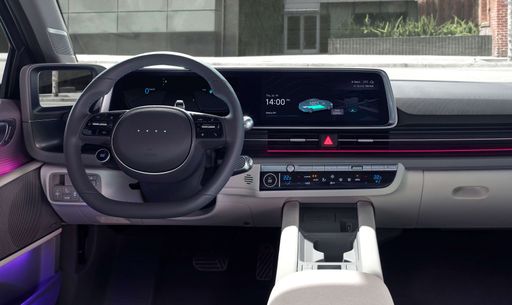 @ hyundai.news
@ hyundai.news

|

|
|
|
|
Costs and Consumption |
|
|---|---|
|
Price
27000 - 42000 £
|
Price
37600 - 55000 £
|
|
Consumption L/100km
7.5 - 8.6 L
|
Consumption L/100km
-
|
|
Consumption kWh/100km
16.80 kWh
|
Consumption kWh/100km
13.9 - 15.1 kWh
|
|
Electric Range
339 km
|
Electric Range
429 - 614 km
|
|
Battery Capacity
-
|
Battery Capacity
53 - 77.4 kWh
|
|
co2
0 - 197 g/km
|
co2
0 g/km
|
|
Fuel tank capacity
50 L
|
Fuel tank capacity
-
|
Dimensions and Body |
|
|---|---|
|
Body Type
SUV
|
Body Type
Hatchback
|
|
Seats
5
|
Seats
5
|
|
Doors
5
|
Doors
4
|
|
Curb weight
1517 - 1840 kg
|
Curb weight
1850 - 2095 kg
|
|
Trunk capacity
551 L
|
Trunk capacity
401 L
|
|
Length
4450 - 4465 mm
|
Length
4855 mm
|
|
Width
1870 mm
|
Width
1880 mm
|
|
Height
1620 - 1645 mm
|
Height
1495 mm
|
|
Payload
410 - 463 kg
|
Payload
425 - 430 kg
|
Engine and Performance |
|
|---|---|
|
Engine Type
Petrol, Electric
|
Engine Type
Electric
|
|
Transmission
Manuel, Automatic
|
Transmission
Automatic
|
|
Transmission Detail
Manual Gearbox, Automatic Gearbox, Reduction Gearbox
|
Transmission Detail
-
|
|
Drive Type
Front-Wheel Drive, All-Wheel Drive
|
Drive Type
Rear-Wheel Drive, All-Wheel Drive
|
|
Power HP
163 - 190 HP
|
Power HP
151 - 325 HP
|
|
Acceleration 0-100km/h
8.40 s
|
Acceleration 0-100km/h
5.1 - 8.8 s
|
|
Max Speed
156 - 191 km/h
|
Max Speed
185 km/h
|
|
Torque
260 - 360 Nm
|
Torque
350 - 605 Nm
|
|
Number of Cylinders
4
|
Number of Cylinders
-
|
|
Power kW
120 - 140 kW
|
Power kW
111 - 239 kW
|
|
Engine capacity
1497 cm3
|
Engine capacity
-
|
General |
|
|---|---|
|
Model Year
2021 - 2023
|
Model Year
2022
|
|
CO2 Efficiency Class
F, G, A
|
CO2 Efficiency Class
A
|
|
Brand
SsangYong
|
Brand
Hyundai
|
SsangYong Korando
Discovering the SsangYong Korando: Combining Performance with Innovation
The SsangYong Korando has persistently evolved, emerging as a formidable presence in the compact SUV segment. With a blend of intriguing design, versatile engine options, and cutting-edge technology, the Korando aims to cater to a diverse array of driving preferences and needs. In this article, we delve into the technical intricacies and pioneering innovations that define the vehicle.
A Versatile Engine Line-up: Catering to Petrol and Electric Enthusiasts
The Korando provides a remarkable variety of powertrains, accommodating drivers who favour both traditional petrol engines and modern electric motors. For petrol enthusiasts, the Korando comes equipped with a 1.5 GDI-T engine, boasting a power output of 163 PS. Available in both manual and automatic transmission, and offering either front-wheel or all-wheel drive, these variants promise a dynamically engaging driving experience.
The brand’s commitment to sustainability is evident with the introduction of the E-Motion model, which is powered by an electric motor delivering 190 PS. With a commendable range of 339 km and an energy consumption of 16.8 kWh/100km, the E-Motion exemplifies SsangYong's ambition to shape the future of eco-friendly motoring.
Technical Excellence: Performance and Efficiency
With a peak speed ranging between 156 to 191 km/h, the Korando ensures that drivers experience both agility and responsiveness. The petrol variants offer a respectable efficiency, with fuel consumption spanning from 7.5 to 8.6 L/100km, while the electric variant promotes zero emissions. This makes the Korando an optimal choice for those conscious of both performance and environmental impact.
Acceleration from 0 to 100 km/h in just 8.4 seconds—paired with a torque range of 260 to 360 Nm—ensures an exhilarating ride whether navigating city streets or venturing onto open highways. Moreover, with a robust towing capacity, the Korando stands as a reliable companion for any adventure.
Interior Quality and Innovative Features
Inside the Korando, occupants are greeted by a spacious cabin designed with emphasis on comfort and practicality. Advanced infotainment systems seamlessly integrate with connectivity features, ensuring that every journey is both entertaining and stress-free. Emphasising safety, the Korando is equipped with multiple driver-assistance systems, including adaptive cruise control and lane-keeping assist.
Mirroring its exterior aesthetics, the interior is crafted with premium materials, providing a serene ambience throughout the ride. With abundant luggage space, a family of five can effortlessly embark on long-distance travels without compromises on space or comfort.
Conclusion: A Synergy of Tradition and Modernity
The SsangYong Korando seamlessly merges robust performance with cutting-edge innovation, appealing to a wide demographic of drivers. Whether drawn to the unmistakable power of its petrol engines or the sustainable allure of its electric variant, prospective owners are sure to find a model that complements their lifestyle. The Korando remains an impactful player in the SUV landscape, continually adapting to the demands of modern-day motoring while staying true to its heritage.
Hyundai IONIQ 6
Introducing the Hyundai IONIQ 6: A New Era of Electric Mobility
The Hyundai IONIQ 6 is more than just a car; it's a glimpse into the future of electric mobility. With cutting-edge technology, impressive performance, and a sustainable design, this vehicle stands as a beacon for the automotive industry's electric revolution. Let's delve into what makes the IONIQ 6 a standout choice in the rapidly growing electric vehicle market.
Performance and Power: The Heart of the IONIQ 6
The Hyundai IONIQ 6 offers two battery options – a 53 kWh version and a more powerful 77.4 kWh variant. Depending on the configuration, drivers can experience a power output ranging from 151 PS to a remarkable 325 PS, highlighting the versatility of this model. With a maximum torque of up to 605 Nm, acceleration from 0-100 km/h is achieved in just 5.1 to 8.8 seconds, catering to both efficiency enthusiasts and those with a penchant for speed.
Efficiency and Range: Long Journeys Made Easy
One of the IONIQ 6's standout features is its exceptional range. Offering an electric range between 429 km to an impressive 614 km on a single charge, it's designed to go the distance. Efficiency is at the forefront, with energy consumption between 13.9 kWh/100km and 15.1 kWh/100km, ensuring that your driving experience remains as eco-friendly as it is enjoyable. All variants boast a CO2 efficiency class of A, reflecting Hyundai's commitment to sustainability.
Design and Interior: Luxury Meets Sustainability
The IONIQ 6's sleek, aerodynamic design is not only visually stunning but also functional, reducing air resistance to maximise efficiency. Offering a hatchback style, it comfortably seats five, ensuring ample space for passengers and luggage. The interior is crafted with sustainable materials, combining advanced technology with an eco-conscious ethos. With a boot capacity of 401 litres, it seamlessly balances practicality with style.
Technology and Innovation: Driving into the Future
Packed with the latest automotive technologies, the IONIQ 6 integrates the future of driving with present-day conveniences. It features a state-of-the-art automatic transmission with a reduction gearbox that ensures smooth driving dynamics. Its advanced driver assistance and safety systems provide peace of mind on every journey, making it an ideal choice for progressive drivers who embrace technology.
Conclusion: A Competitively Priced Electric Option
The Hyundai IONIQ 6 offers an enticing blend of performance, range, and sustainability. With prices ranging from €43,900 to €64,200, it represents excellent value for an electric vehicle of its calibre. Monthly costs are competitively set between €1066 to €1379, while cost per km ranges between 42.7 to 55.2 cents, appealing to cost-conscious customers without compromising on quality or innovation. The IONIQ 6 is a triumph of modern engineering, making it a strong contender in the electric vehicle market.
The prices and data displayed are estimates based on German list prices and may vary by country. This information is not legally binding.
